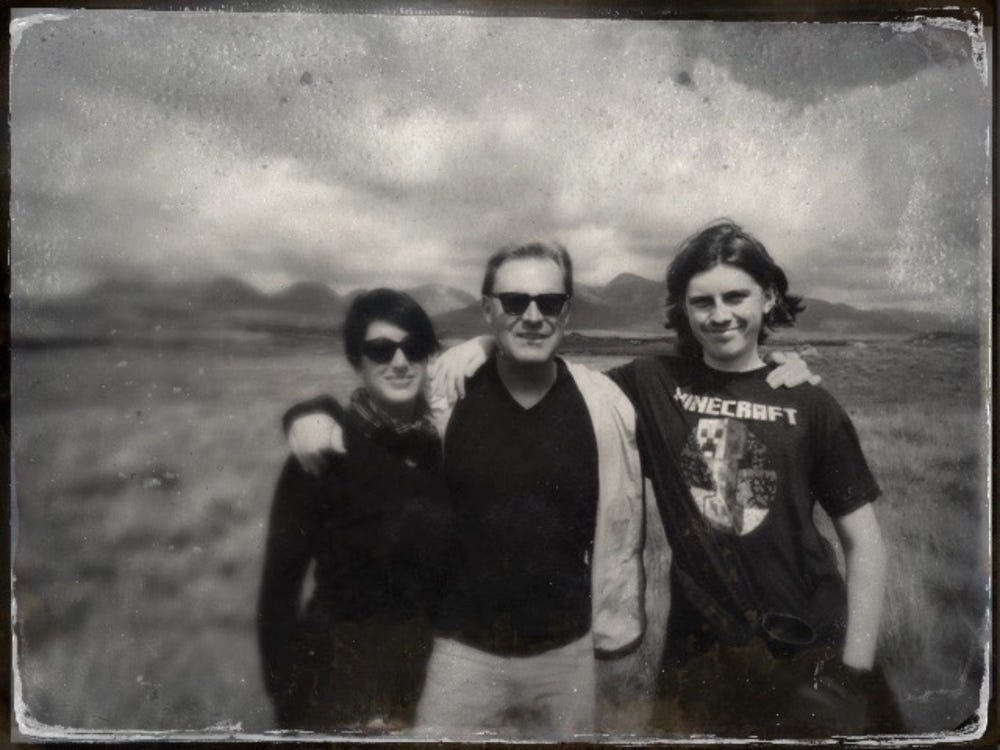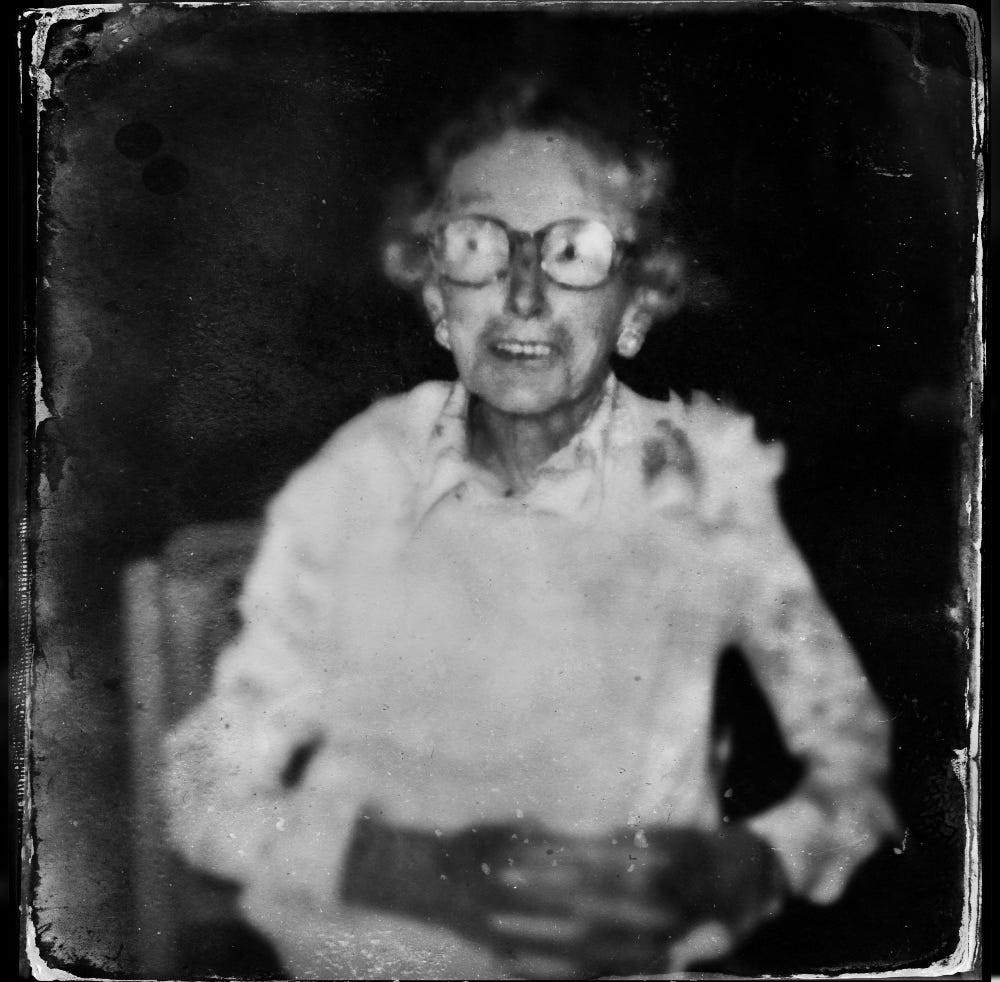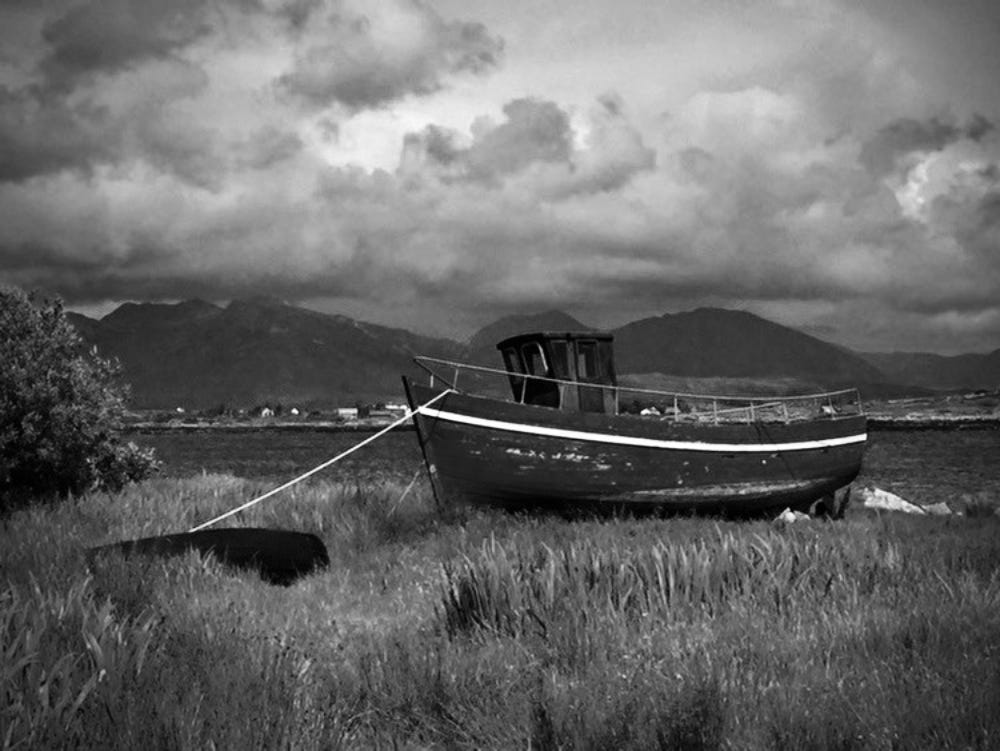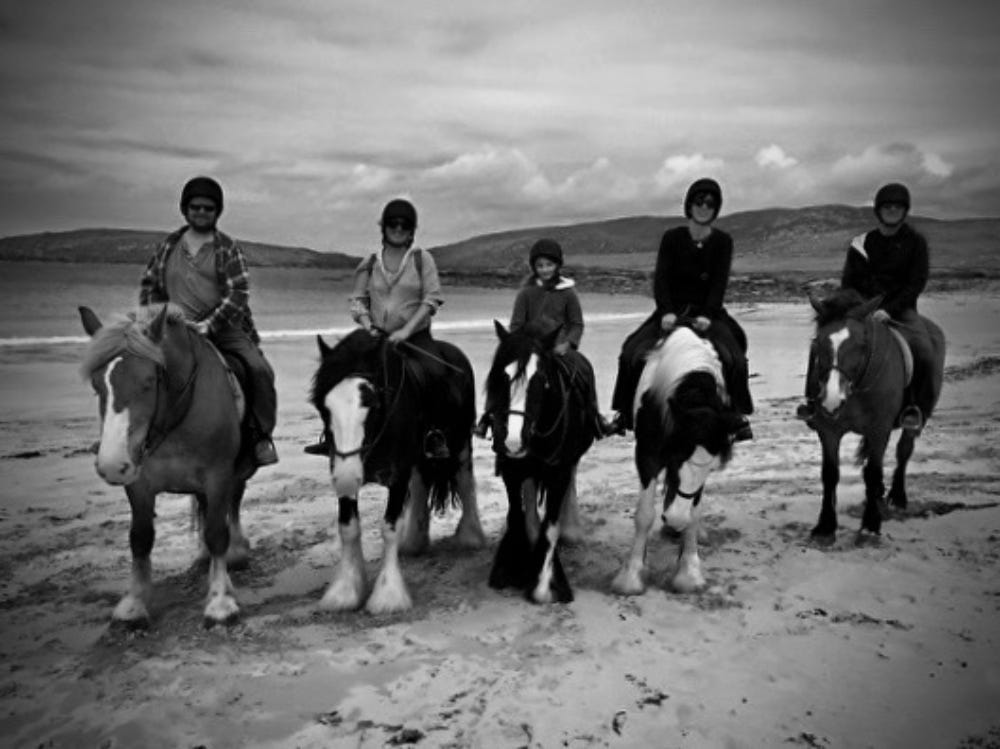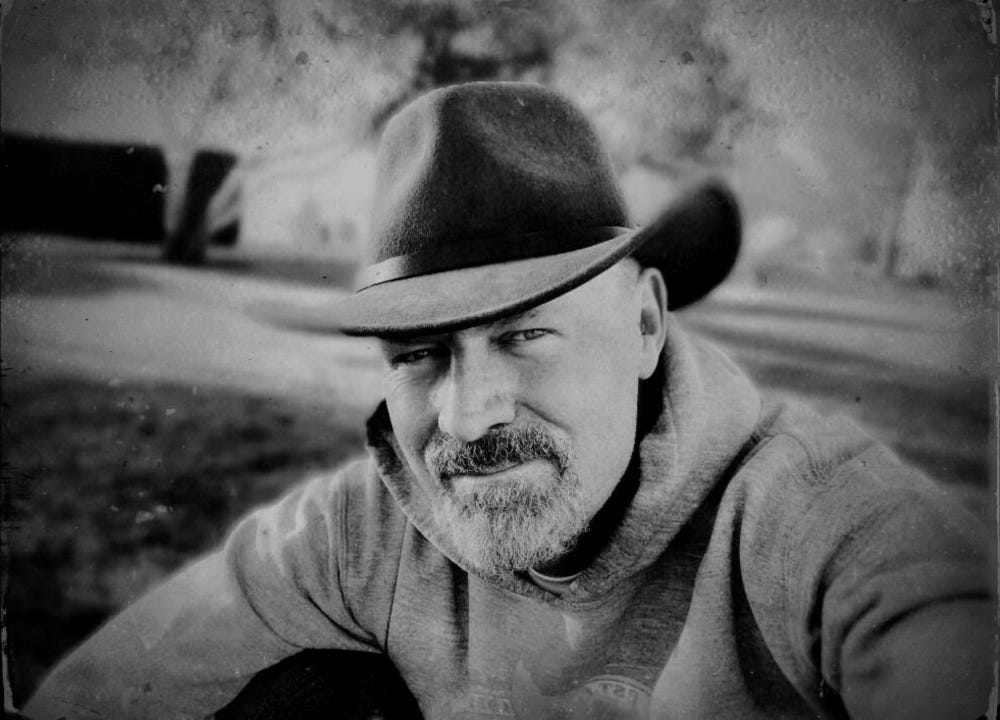The Postcard I Never Sent
A journey to Ireland and the grandmother who shaped me
She died in her ninetieth year, after a quiet afternoon paging through an Irish travel book.
The room was still, the windows open to soft light. We gathered close, waiting, not knowing what to say.
My father leaned in and asked, “Are you comfortable?”
Her last words, barely audible, carried that unmistakable Irish lilt: “I am.”
Then the light faded from her eyes.
He held a small mirror to her mouth, gently placed two fingers against the inside of her wrist. Closed his eyes. For a moment, all we could hear was his breath.
Then he whispered:
“She’s gone.”
With Mary’s passing, the world lost more than a person. It lost warm bread from the oven. Her lilting laugh. The soft hands that calmed every sorrow. It lost a certain steadiness so common in grandmothers.
A way of loving that asked for nothing in return.
Mary, a few hours before she passed away. Photo: J. B. Weiss
I used to wonder where she went.
Did she return, if only for a moment, to the hills and hedges of Kerry? Did she walk the narrow lanes of her childhood, where the stones remember your steps even when no one else does? Did she smell the peat smoke? Step into the old pub where faces once lit up when she entered?
Or was the call of her beloved too strong?
Did she go straight to Edward, waiting with his wild grin and weathered fiddle? Did the table fill with music and pipe smoke, the room swelling with cousins and kin, all risen from frames on living room shelves?
What are reunions like in the next world?
Are there tears, or just laughter? Do the dogs and cats we once loved run to meet us, tails wagging, purring in our arms again?
Is there cake?
And I began to understand
In my fifth decade, I finally returned to the land she came from. My wife, my son, and I. Three Americans with a map, looking for something we couldn’t name.
We crossed the land by train, bus, and car. From Dublin to Roundtree, through the soft hills of Kerry and the hard wind of the western shore. In Galway, we walked cobblestones. In Connemara, we leaned into fierce gusts while ponies watched from stone paddocks, their eyes wise and unmoved.
Old boat in Ireland. Photo: J. P. Weiss
We drank in pubs and raised our glasses with strangers who felt like cousins. We sang songs we barely knew and laughed without quite knowing why.
And I began to understand.
Now I know what shaped her: the warmth of people who talk to you like they’ve known you forever. The way joy and sorrow walk hand in hand in Ireland. The slowness. The kindness. The land itself.
You can take the lass out of Ireland. But you cannot take Ireland out of the lass.
It was in her always.
Riding horses on the beach in Ireland. Photo: C. K. Weiss
We rode horses on the beach near Connemara.
At the Cliffs of Moher, wind lashed our faces and seabirds wheeled and cried above us. Somewhere between the salt and spray, I thought I heard her voice.
“I missed you, Johnny,” she said. “I missed you, dear grandson.”
“I missed you too, Mary.”
So I settle for dreams
Thank God we came those years ago.
Because there, in that strange and holy land, I felt her again. In the faces of strangers, the music in the streets, the fields where sheep wandered and the air smelled of earth and tide.
What strange alchemy crafts a sense of place? What enchantment greets us when we return to the soil that shaped the people who shaped us?
I told my son about her as we drove through Kerry. I wanted him to know who she was. What she meant. How she still lives in me.
I bought postcards and mailed a few. One I kept.
It sits in a drawer in my study now. Sometimes I take it out, run my thumb across its edges, and remember. I wish I could send it to her. Tell her we made it. That we found the places. That we laughed and danced and sang. That she was there with us.
But some destinations lie beyond the reach of any post.
So I settle for dreams.
And in those dreams, she visits. In a warm kitchen, soda bread baking, steam on the windows. She speaks to me in that soft brogue. I am a boy again. Loved. Safe. Whole.
Maybe someday, when my own time comes, they’ll tuck that postcard into my coat pocket. Slip in a fountain pen too.
And after I’ve boarded that final carriage, I’ll write her a few lines.
She loved Emily Dickinson, so maybe I’ll begin there:
Because I could not stop for Death—
He kindly stopped for me—
The Carriage held but just Ourselves—
And Immortality.
Then I’ll tuck the postcard away, close my eyes, and breathe in the scent of soda bread.
I’ll picture her smile, run to her, and fall into her arms.
And then I’ll know what celestial reunions are like.
Before you go
This journal continues because a few readers quietly support it. If these pages matter to you, a small one-time gift below helps keep the work going.
Thank you for reading.
Subscribe to Weiss Journal.


